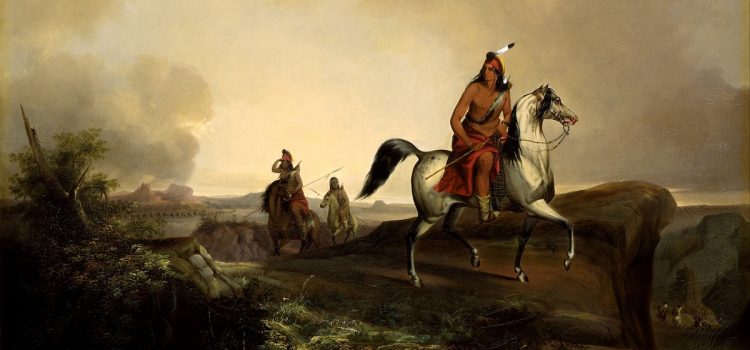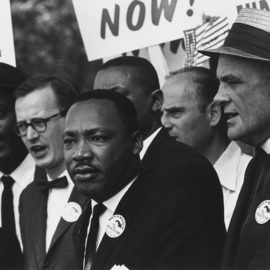

This article is an excerpt from the Shortform book guide to "The Dawn of Everything" by David Graeber. Shortform has the world's best summaries and analyses of books you should be reading.
Like this article? Sign up for a free trial here.
Who was Kandiaronk? Did his ideas influence the Enlightenment in Europe?
Kandiaronk, a leader of the Wendat people in North America, was an intellectual whose ideas made their way to Europe in the late 17th and early 18th centuries. In The Dawn of Everything, David Graeber and David Wengrow argue that these ideas gave rise to the Enlightenment.
Continue reading to learn about this intriguing character and his philosophy.
Kandiaronk’s Influence on the Enlightenment
Graeber and Wengrow’s examination of diverse social structures, values, and beliefs begins with a discussion of the relationship between the indigenous tribes and European colonists in North America. These interactions informed the European view of indigenous societies in general and ultimately came to influence European culture itself. This is because, the authors argue, European Enlightenment philosophy was inspired by the native North American people’s critique of European customs.
In the late 1600s, European colonists in North America became engaged in philosophical discussions with the indigenous peoples of that land. Some of the indigenous people and the colonists learned to speak one another’s languages fluently. Graeber and Wengrow explain that the native North Americans had strong philosophical traditions and skilled orators who challenged European colonial officials in debates. In particular, French Jesuits in the area around Montreal (known then as New France) had a series of lively intellectual and philosophical discussions with Kandiaronk, a leader of the Wendat people. Many of these conversations were recorded in writing.
In these conversations, Kandiaronk raised scathing critiques of European social customs and values, particularly criticizing monarchical rule, social hierarchies, emphasis on the accumulation of wealth and materialism, and punitive justice systems. These descriptions then made their way back to Europe, where they were widely distributed among the intellectual class and, Graeber and Wengrow argue, became the inspiration for much Enlightenment thought. They say several Enlightenment thinkers explicitly stated that they were drawing on these indigenous American ideas but that attribution was either lost or purposefully discarded over time, and the ideas became associated entirely with the European scholars.
| The Influence of The Rat The Wendat people of the Great Lakes region of Canada, called the Huron by the French, forged political alliances with French colonists for trading furs and protection against their tribal enemies, the neighboring Iroquois. This meant people in the Wendat and French cultures learned one another’s languages and developed close relationships with one another. Wendat chief Kandiaronk (c. 1649–1701), who was known as The Rat, was widely considered by the French colonists to be the most brilliant thinker and orator among the indigenous peoples they’d encountered. A Jesuit historian named Father Charlevoix described him as “the Indian of the highest merit that the French ever knew in Canada.” A French statesman, Baron de Lahontan, published these dialogues in 1703, under the title Curious Dialogues with a Savage of Good Sense Who Has Traveled, and it’s this publication that Graeber and Wengrow argue influenced “almost every major Enlightenment thinker.” |
Even though we in modern state societies don’t fully embrace the freedoms of an egalitarian society (for example, we believe authority and law enforcement are necessary), Graeber and Wengrow point out that the values of contemporary American and European cultures are more aligned with the values of indigenous Americans in the 1700s than with European culture from that time. They argue that this is because the “indigenous critique” by Kandiaronk and others like him had a profound influence on European Enlightenment thought.

———End of Preview———
Like what you just read? Read the rest of the world's best book summary and analysis of David Graeber's "The Dawn of Everything" at Shortform.
Here's what you'll find in our full The Dawn of Everything summary:
- How our beliefs about the evolution of human societies have been wrong all along
- An exploration of different notions of freedom and equality
- Thought-provoking questions about the inevitability of inequality






